Behavior against external agents
Behavior against external agents refers to how a given material will behave in situations in which conditions such as temperature, humidity, radiation or other possibilities will have an effect on it.
Measuring parameters such as resistance to these factors is an important issue, since simulated laboratory environments will make it possible to recreate the response of the material and, consequently, to know whether they meet the expected requirements.
To test the behavior of a part against external agents, Infinitia Industrial Consulting has specific equipment in our laboratory and the extensive experience of our technicians.
Thermal aging
Thermal aging tests will subject a material to different temperatures, either constantly or by causing abrupt changes, inside a thermal chamber. In general, the purpose of these tests is to study the behavior of the material under the temperature conditions that it will withstand during its useful life and thus verify that it will perform adequately.
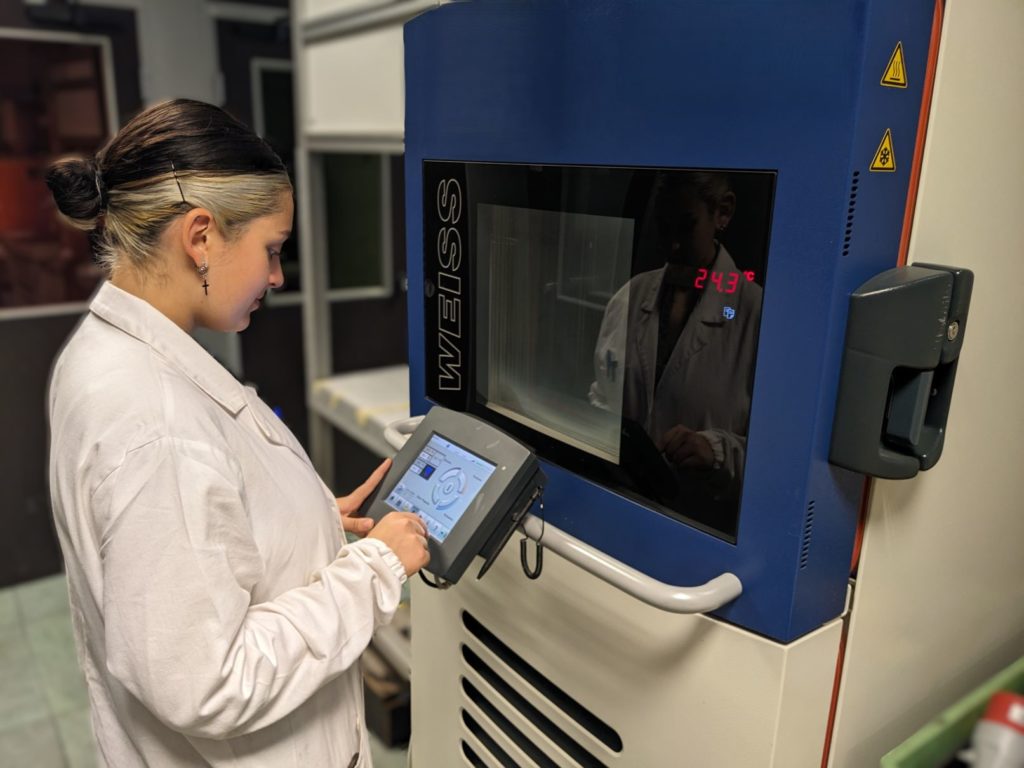
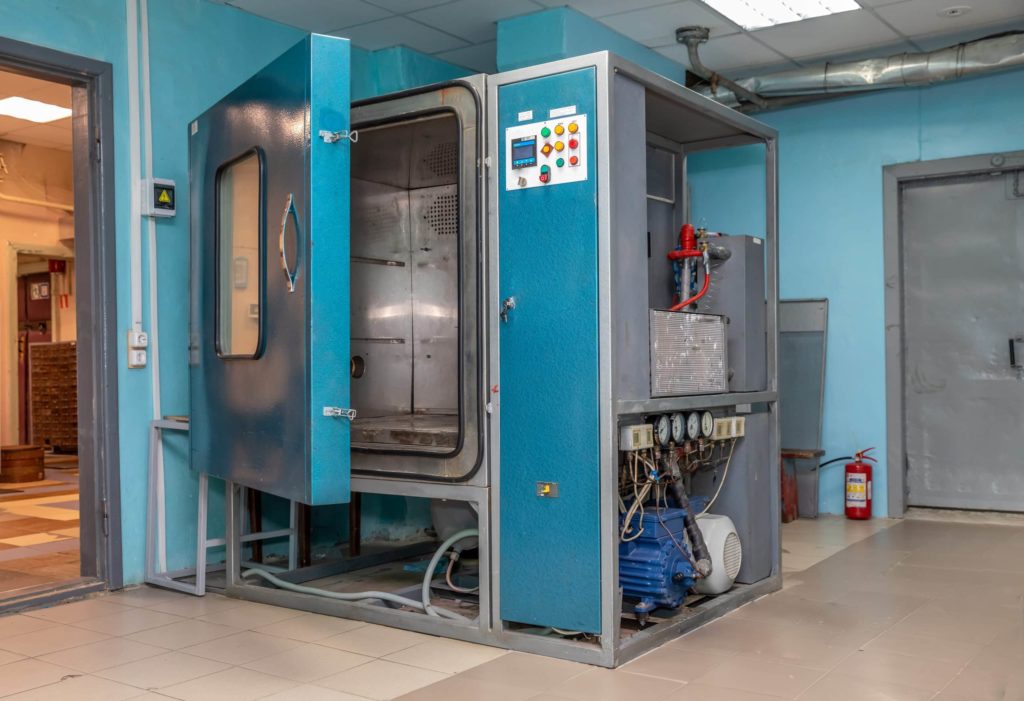
Climatic tests
Climatic tests will simulate the weather conditions and scenarios to which a material will be exposed. Temperature, humidity or solar radiation are some of these factors.
In the case of humidity, the corrosive action of water on the part will be determined, checking aspects such as salinity or relative humidity of the air.Test corrosion. are also relevant in this field.
As for radiation, they will try to determine how exposure to light affects the aging of a material. For this purpose, different amounts of ultraviolet radiation will be applied, as well as ionizing radiation such as gamma and X-rays.
Artificially accelerated aging
Artificial accelerated aging will test in a controlled environment, i.e. the laboratory, how a materials age under different external agents. The aim is to artificially simulate the conditions in which the part will develop, in order to determine its expected evolution and how, for example, inclement weather can affect its properties and useful life.
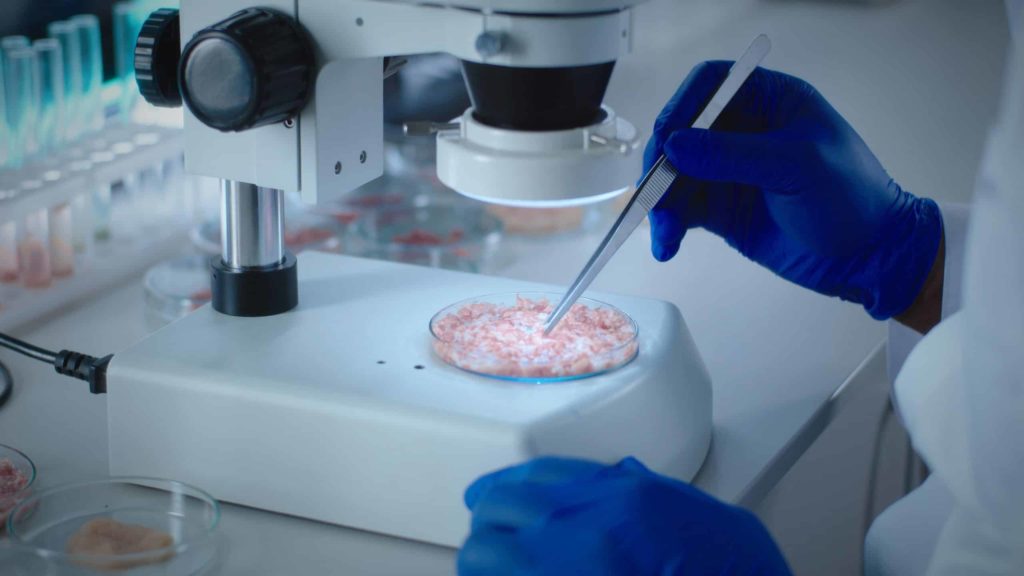
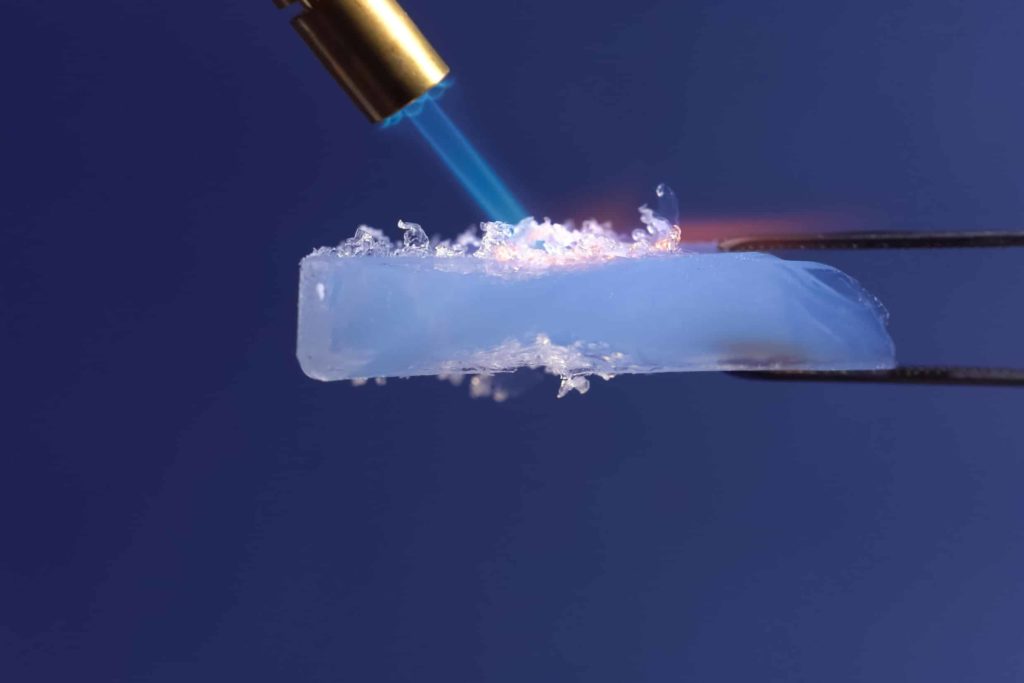
Resistance to thermal shock
Thermal shock resistance refers to how a given material behaves when faced with a sudden change in temperature, a phenomenon that can cause, for example, mechanical stresses between its interior and exterior.
This type of test is usually performed in thermal shock chambers, either air-air or liquid-liquid, which simulate these sudden temperature changes to check the reaction of the material.
Stain resistance
Stain resistance is a test that will try to determine the stainability of the surface of a given material, i.e., to what extent it is difficult to remove a substance that has come into contact with its surface, but has not caused a chemical reaction, as we would then speak of chemical attack.
This is a very common test in, for example, the tile industry, as these are materials that are often exposed to staining. In fact, within this field there is a classification of ease of cleaning in ceramic tiles, ranging from class 5, which allows them to be cleaned with hot water, to class 1, in which it is impossible to clean them.
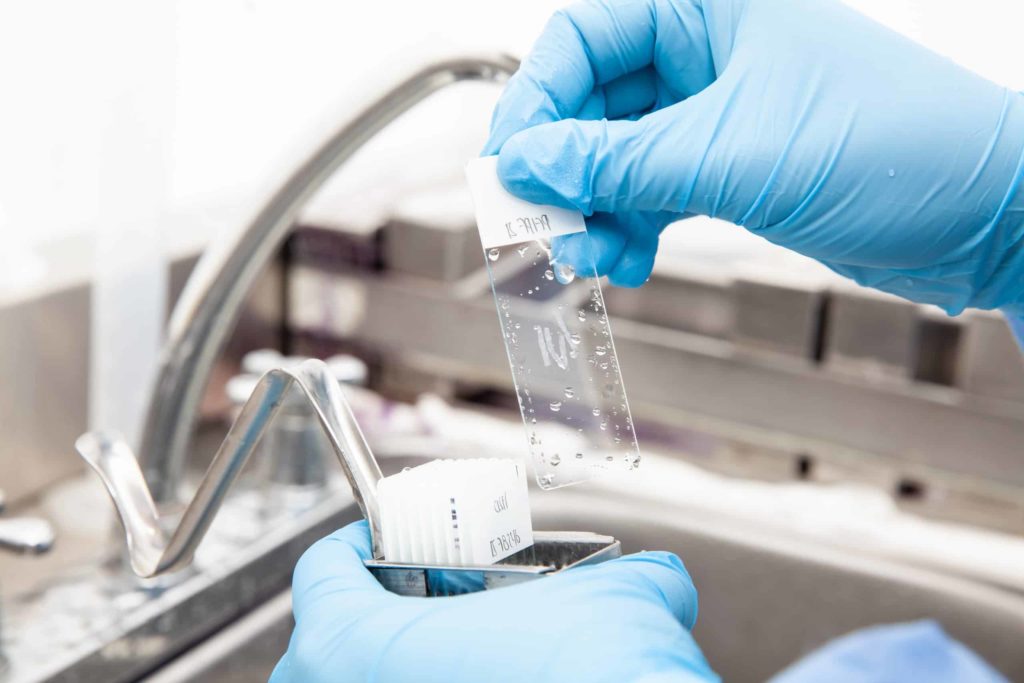
Whether for this type of material or for any other, Infinitia has the most advanced technical equipment that will simulate the most demanding and customized conditions, in order to test the response of a material against external agents.
Contact with us
Contact us for more information or, if you prefer, you can use one of our other technical consultancies with complementary services to boost your project.
